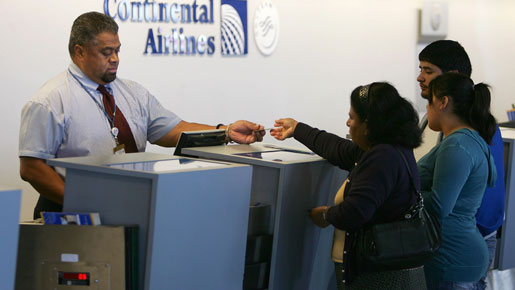
Now many are finding that managing employee travel more carefully has benefits beyond pure cost-savings. While the recession may be one of the first things on a client’s mind when considering a big investment, environmental factors are often not far behind. Consumers are increasingly aware of the environmental impact of every choice they make, examining the green credentials of companies before they spend their money.
Companies that have effective plans to minimise their impact on the environment are often seen more favourably by a growing number of discerning potential clients. These companies find that by managing their employees’ business travel they can at once save money, and improve their green credentials.
Take BT Group, which ranks seventh in the Sunday Times’ list of “best green companies” in Britain. On a route used frequently by employees, the Group has negotiated a special deal with a rail company, allowing staff to travel by first class train for less than the price of a standard fare. Now BT employees can take advantage of Wi-Fi internet and power sockets on the train, while the company boosts its green scoring by burning significantly less carbon dioxide than if staff travelled by plane.
Another tactic of BT, and used by a growing number of others, is to look at alternatives to travel altogether. There may be nothing quite like “being there” to close a crucial deal – but for a lot of meetings, video conferencing is just as effective. BT encourages its staff to use video conferencing facilities as much as possible as a way of cutting carbon emissions from air travel.
Reducing company travel and negotiating special deals on frequent routes is a sound way of managing travel costs. But for BT, these policies have given it another feather in its environmental cap, helping the telecommunications firm cut its carbon emissions on short-haul air travel to 6.9 million kilograms in 2008, down from 7.5m kilograms in 2006.
Video conferencing is also being encouraged by accountancy heavyweight PriceWaterhouseCoopers as an alternative to air travel. The resulting reduction in greenhouse gas output helped the firm reach twenty-fourth place on the Sunday Times’ list.
Other companies are becoming more aware of the impact of their travel on the environment, and either looking at ways to reduce it or switching to greener options. British Sky Broadcasting, for example, has reduced its company air travel. In particular, it has minimised the use of a private helicopter. While this undoubtedly reduced expenses, it also brought the company’s carbon dioxide output down by 10 tonnes between the 2007 and 2008 financial years – important for a corporation which prides itself on being the world’s “first carbon-neutral media company”.
Careful management of business travel can be a way of both lowering expenditure and boosting marketing potential with greener credentials. As the recession drags on and companies look for ways to contain costs and strengthen sales, this looks like a win-win solution.

